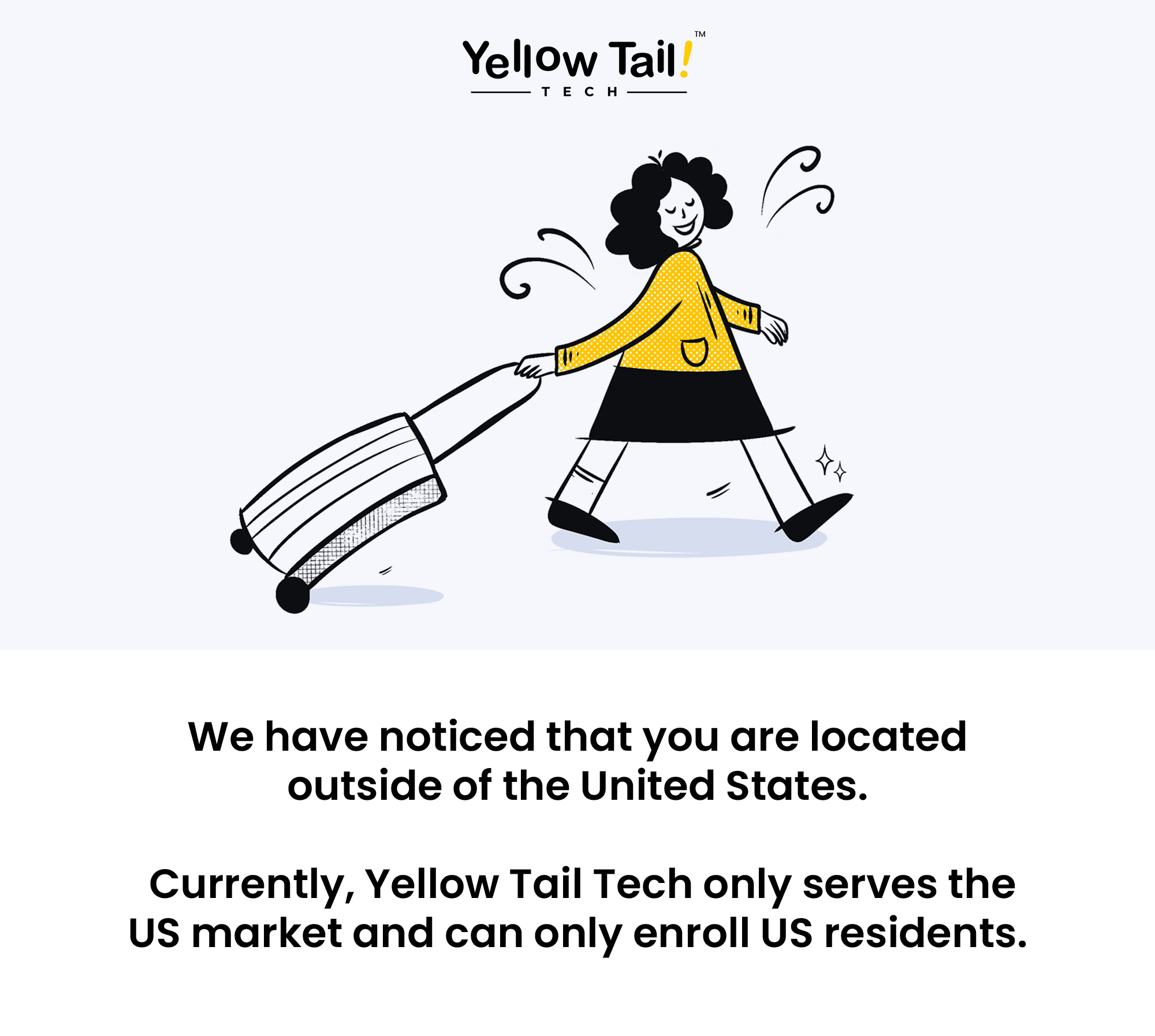Breaking into information technology is only for software developers with computer science degrees or years of relevant experience. Think again.
The truth is, you can land entry level IT jobs no experience, and no, that’s not just hype.
Many people believe IT careers are “off-limits” unless they already have a bachelor’s degree or years of training. But today, the tech industry is more open than ever to hard-working, qualified applicants with the right mindset, necessary skills, and a willingness to learn.
At Yellow Tail Tech, we’ve seen people break into IT in record time through focused training and hands-on practice.
In this guide, you’ll find the following information:
- 10 real entry-level IT jobs you can apply for right now
- The certifications that boost your chances of getting hired in IT
- Tips on how to prepare a resume, cover letter, and portfolio that make potential employers take notice.

Why Entry-Level IT Is More Accessible Than Ever
The IT industry is booming, and as a result, there are more job postings available for beginners than ever before.
Here’s why breaking into the tech world is easier today:
- Companies want skills, not just degrees. Employers are increasingly focusing on certifications, communication skills, and hands-on training rather than requiring a four-year degree.
- IT career paths are diverse. You don’t have to be a developer to succeed. Many entry-level roles focus on hardware and software support, ticketing systems, or networking.
- Remote jobs are growing. Many entry level IT jobs no experience (especially in help desk support) are now available remotely, creating more opportunities for job seekers with only a high school diploma or training from a related field.
If you’ve been wondering how to get an entry level IT jobs no experience, the good news is there’s a clear path.
10 Entry-Level IT Jobs You Can Start With No Experience
Here are 10 beginner-friendly jobs, with job descriptions, skills required, and salary ranges:
1. IT Support Specialist
- Job description: Assist employees or clients with hardware and software issues in an IT environment.
- Skills required: Communication skills, Microsoft Windows knowledge, and problem-solving ability.
- Why beginner-friendly: Many companies train on the job.
- Median pay: $40,000–$55,000/year.
2. Help Desk Technician
- Job description: Respond to support tickets, troubleshoot hardware and software, and use ticketing systems.
- Skills required: Written communication, customer service, and patience.
- Why beginner-friendly: It’s often the first step on the IT career path.
- Median pay: $38,000–$52,000/year.
3. Junior System Administrator
- Job description: Manage systems, user accounts, and updates for an organization.
- Skills required: Linux, networking, and the ability to adapt.
- Why beginner-friendly: Certifications give you credibility even without experience.
- Median pay: $50,000–$65,000/year.
4. Technical Support Analyst
- Job description: Provide support to employees, troubleshoot problems, and create documentation.
- Skills required: Knowledge of systems, analysis, and communication.
- Median pay: $42,000–$56,000/year.
5. IT Technician
- Job description: Install and maintain hardware and software in a business environment.
- Skills required: Hands-on hardware knowledge, networking basics.
- Median pay: $40,000–$54,000/year.
6. Data Entry Technician (IT-focused)
- Job description: Manage IT-related data and support development teams.
- Skills required: Attention to detail, database knowledge.
- Median pay: $35,000–$45,000/year.
7. Computer Support Specialist
- Job description: Assist customers and employees in understanding computer systems and resolving issues.
- Skills required: Customer service, ability to explain technical concepts.
- Median pay: $37,000–$50,000/year.
8. Junior Network Administrator
- Job description: Monitor networks, assist with security, and prepare reports.
- Skills required: Networking, security basics.
- Median pay: $52,000–$65,000/year.
9. Cloud Support Associate
- Job description: Support cloud-based services like AWS and Azure.
- Skills required: Cloud fundamentals, written communication, and adaptability.
- Median pay: $55,000–$70,000/year.
10. Cybersecurity Technician (Entry-Level)
- Job description: Monitor threats, respond to alerts, and assist in protecting systems.
- Skills required: Security+ certification, attention to detail, problem-solving.
- Median pay: $50,000–$65,000/year.

Certifications That Boost Your Chances
For many entry-level remote IT jobs, certifications matter more than a degree.
Here are three certifications that make you stand out to potential employers:
- RHCSA (Linux System Administration): Essential for those managing systems.
- CompTIA Security+: Proves you have cybersecurity knowledge.
- AWS Cloud Practitioner: Demonstrates your understanding of cloud systems.
Many students also choose our Lnx For Jobs Program and Its Contribution to Those Who Want to get a career in IT, which blends certifications with hands-on training so you can show relevant experience to employers.
The Role of Apprenticeships and Hands-On Training
Employers want employees who can do the work, not just talk about it. That’s why practical training is so valuable.
At Yellow Tail Tech, we prepare students with:
- Real-world Linux training.
- Certification preparation.
- Apprenticeship programs that simulate an actual IT environment.
We’ve shared The Stories of the Women Behind Yellow Tail Tech who successfully transitioned into IT without prior technical backgrounds, proving that it’s possible with the proper training and support.
Career Growth After Your First IT Job
Your first entry-level position is just the beginning of your IT career. Here’s a common growth path:
- Help Desk → System Admin → DevOps → Cloud Engineer.
Each step builds your resume with new skills, more responsibility, and better compensation.
The beauty of IT is that it’s not limited to tech companies.
Check out our feature on the Top 5 Non-tech Companies for IT Professionals to see how diverse your opportunities really are.
How to Stand Out as a Beginner in IT
Breaking into IT without prior employment requires preparation and the right approach:
- Resume & Cover Letter: Highlight training, certifications, and any relevant experience, even volunteer work.
- Networking: Connect with IT professionals, organizations, and teams online or at local events.
- Portfolio: Document labs, projects, and systems you’ve built or managed.
- Soft Skills: Employers value communication, teamwork, and the ability to adapt.
Remember: employers hire for potential and initiative, not just past jobs.
Your First Step Into IT Starts Here
You don’t need a degree in computer science or years of development experience to break into the IT industry. What you need are certifications, skills, and the courage to take the first step.
Ready to launch your IT career? Book a 10-minute intro call with Yellow Tail Tech today and start your IT journey with hands-on training, certifications, and apprenticeship opportunities.
Frequently Asked Questions
- What is the lowest salary in an IT company?
Entry-level compensation typically ranges from $35,000–$40,000 per year, depending on the position and location. - What is the easiest job in the IT field with no experience?
Help desk or IT support roles are often considered the most accessible because they focus on communication, hardware, and customer support. - What’s the best entry-level IT job?
It depends on your career goals. For long-term growth, Junior System Administrator or Cloud Support Associate roles have excellent development opportunities. - Can I get into IT with no degree?
Yes. Many employers in the tech industry prefer to hire applicants with certifications, training, and relevant skills instead of a bachelor’s degree. - Are entry-level IT jobs available remotely?
Yes. Many job postings, especially in help desk, cloud, and technical support, list remote options. - What qualifications do I need for an entry-level IT job?
A high school diploma or equivalent is often enough to apply. Certifications, training, and communication skills boost your chances of employment.






